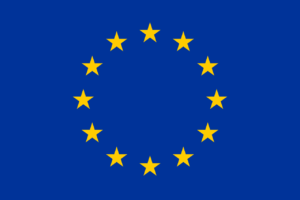In Austria, TU Graz will continue to test the Vehicle to Grid (V2G) technology for electric vehicles (EV) and fuel cell electric vehicles (FCEV), while the Austrian Institute of Technology will keep on dealing with Home Energy Management Systems (HEMS), short-term PV forecast and aggregated stationary storage. The latter will be assessed in cooperation with the Utrecht University. In the Netherlands, the University of Twente will focus instead on the solar charging of Electric Vehicles and bikes, as well as on apps with Energy Service and Power Matching City for households with heat pumps. The Utrecht University will focus instead on local stationary community battery.
Felix Lehfuss and David Reihs (AIT) guided participants on a tour through AIT´ Smart Electricity Systems and Technologies Laboratory (SmartEST) where simulations about E-Vehicle charging operations are simulated. Therefore, the CESEPS Consortium had the opportunity to see first-hand how the co-simulation environment works and the requirements for the SEPS testing activities within Work Package 4 and 5.
Further steps in the project will be discussed at the next transnational meeting at the University of Twente, in the Netherlands, later in 2018.


